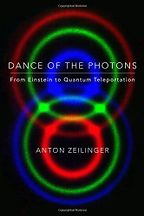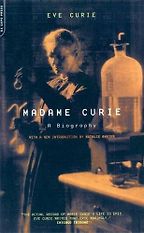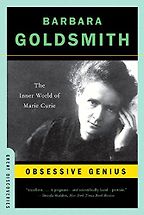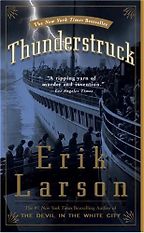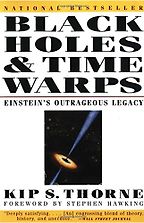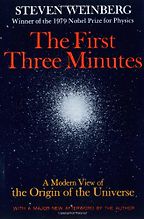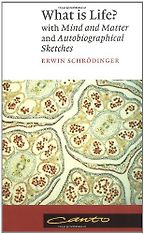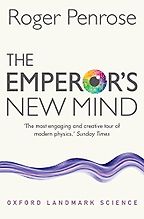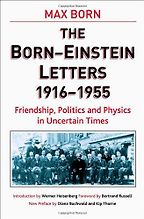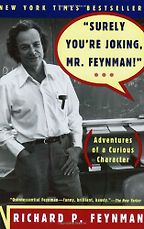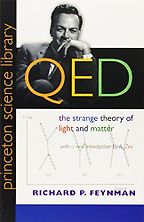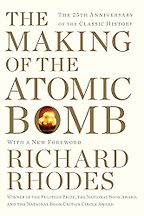Books by or about Nobel Prize-winning physicists
Last updated: August 07, 2024
Since it was set up in 1901, the Nobel Prize in Physics has been awarded annually (with one or two breaks, including in the middle of World War II), with more than 200 physicists honoured. Below we've listed all the books that have been recommended on Five Books that are either written by a Nobel Prize-winning physicist or is about them. We also have two interviews dedicated to books about Albert Einstein, winner of the 1921 Nobel Prize in Physics. To be recommended on our site, these books, while written by physicists, will tend to be accessible to the general reader, or at least written with a non-specialist audience in mind. Books by Richard Feynman (1965 Nobel Prize in Physics) loom large as do books about Marie Curie (née Sklodowska), one of only three women to win the prize.
Dance of the Photons: From Einstein to Quantum Teleportation
by Anton Zeilinger
A popular (but not easy) science book by Austrian physicist Anton Zeilinger, winner of the 2022 Nobel Prize in Physics—along with Alain Aspect and John Clauser—"for experiments with entangled photons, establishing the violation of Bell inequalities and pioneering quantum information science." (For an explanation of what that means, a good article can be found here). The book features two student characters—yes, their names are Alice and Bob—as they grapple with quantum entanglement.
“Madame Curie also serves a hagiographic function, but the biography is different because the reason for her worship is not confined to her work and mind, or even to her roles as Polish immigrant, wife, or mother. It is movingly written by her daughter, Eve, and the author convinces us to care about her because she is human and fragile: ‘exceptional not only in her genius, but by her humanity, by her innate refusal of all vulgarity and littleness.'” Read more...
Jimena Canales, Historian
“To me, the strength of Goldsmith’s biography of Marie Curie is how it so clearly characterizes the depth of her obsession with her scholarly work in the face of almost unimaginable difficulties, from her struggles to afford her education in Paris to the loss of her beloved Pierre.” Read more...
Michelle Francl, Scientist
“Thunderstruck is set just before the First World War. Larson combines a true-life murder mystery—a London doctor named Harvey Crippen murders his wife and buries her body in the basement—with the development of radio by the Italian inventor Guglielmo Marconi. It’s hard to see the connection between those two things and I’m not going to be a spoiler for people who want to read the book, but in the end he brings those two stories together. I chose this book because radio waves are a type of radiation, and I appreciate how Larson weaves technical information about radio waves into the story of Marconi’s life. He brings Marconi to life and helps readers to understand what his achievements were and why they were scientific breakthroughs.” Read more...
Timothy J. Jorgensen, Biologist
“This book is just plain fun. I said before that if somebody asked me for a book to learn about relativity, I probably wouldn’t pick Einstein’s: I would pick Kip Thorne’s.” Read more...
The Best Books on the Big Bang
Dan Hooper, Physicist
“Steve Weinberg is arguably the most brilliant physicist of the last many decades. He’s an absolute luminary. He also happens to be a really good writer and communicator. I’ve liked all of the books of his I’ve read, but I picked The First Three Minutes because it is the classic book about the Big Bang and the first three minutes of our universe’s history.” Read more...
The Best Books on the Big Bang
Dan Hooper, Physicist
“He was one of the founding fathers of quantum mechanics in the 1920s and then in the 1940s he began to think about biology. At that time the big problem was how biological information is encoded. This is just before Watson and Crick found the structure of DNA and explained the whole thing. About ten years before though, Shroedinger asked this question: can I take this very simplistic way we have of thinking in physics, namely that we like to reduce everything to a very simple mathematical formula (which seems to work actually pretty well) and take that over to biology and start to understand some more complicated processes within a cell, or maybe even light propagation, in terms of physics? The interesting thing there is that he concludes somewhere that classical Newtonian mechanics is probably not sufficient to understand biological things, and we might have to use the full quantum mechanics to understand that. And he comes so close to getting the right mechanism for propagating biological information that he almost managed to scoop Watson and Crick.” Read more...
The best books on Quantum Theory
Vlatko Vedral, Physicist
“If things are left to their own devices they decay and unwind and disorder increases. If you take a pack of cards in the right order and shuffle it they will get mixed up.” Read more...
Physics Books that Inspired Me
Jim Al-Khalili, Physicist
“The letters map out the whole of the theory of 20th-century physics but include all the conflict and personal life, the head-scratching.” Read more...
Physics Books that Inspired Me
Jim Al-Khalili, Physicist
“Everyone should read this book, because it gets across why a subject like physics is so enjoyable. Physics is not just about sticky tape and rolling balls down hills and springs and batteries and ripple tanks—the sort of physics that a lot of people remember from school and may have turned them off the subject because they think it’s dry and boring. A book like Surely You’re Joking, Mr. Feynman! gives you the joy of discovery. Feynman is the most colourful character in physics and he just showed what an incredible adventure science was and is. He just makes you think: ‘Wow! How can the world be like that?! Wait until I tell everyone! I mean, you think the paranormal is amazing – let me tell you about quantum mechanics!’ “ Read more...
Physics Books that Inspired Me
Jim Al-Khalili, Physicist
“I think that he is one of the most intelligent people to live in the 20th century. Yet at the same time, surprisingly, he is an amazingly good teacher. This is quite an unusual combination.” Read more...
The best books on Accessible Science
David Bainbridge, Biologist
“When Feynman was at Cal Tech, this wealthy couple who’d grown up in the same New York neighbourhood as he had said, “Look, you’ve won this Nobel Prize, now explain to ordinary people what for.” And Feynman said, “No, it’s too complicated.” But eventually he did this series of public lectures, and that was the book. It’s a tiny book and in it he describes the whole of quantum electrodynamics without a single equation.” Read more...
Marcus Chown, Science Writer
“This is, of course, the gold standard for that story. It won a Pulitzer Prize, a National Book Award and a whole bunch of other awards. And even though it was published in 1986, it still holds up. I’ve written a lot about nuclear weapons and atomic bombs, so I’ve read basically every book that’s available on it—from the earliest postwar stuff to the present—and Rhodes is just the master at putting it all together. He tells the entire story, from its very beginnings in quantum physics in the early 20th century, and even before that, and how it developed into the atomic bomb. All the figures are in there, all the important physicists. He’s also masterful at explaining the science…If you’re going to read one book on the atomic bomb, that’s the book to read.” Read more...
The best books on The History of Physics
Mark Wolverton, Science Writer
